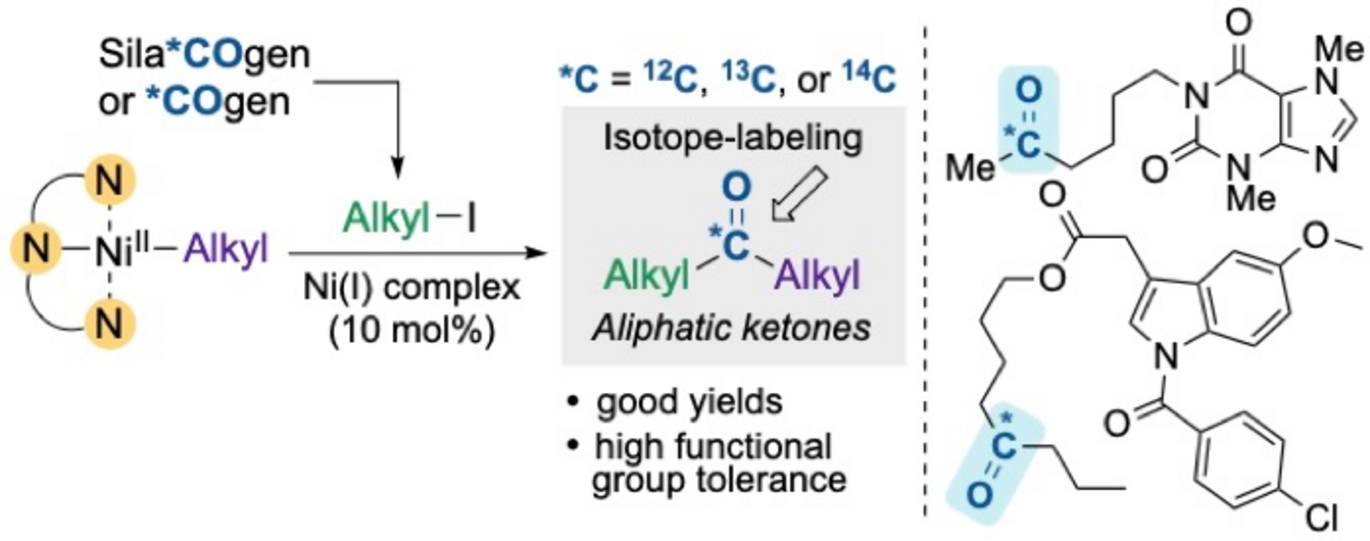New Carbon Isotope Labeling Technique
Carbon isotope labeling of new drug candidates is an important process for allowing preclinical and clinical investigations on a specific compound’s distribution, metabolism, and toxicity. AU researchers have found a new method for this with broad applicability.

Approval of new drug candidates requires documented distribution, metabolism and toxicity investigations, which are supported by specifically positioned isotope labels in the molecule of interest. Carbone isotope labeling is a powerful tool for studying these features of the molecule.
In a new paper from Troels Skrydstrups research group published in Angewandte Chemie International Edition, the team of researchers in collaboration with AstraZeneca scientists, have devised a method for the carbon isotope labeling of aliphatic ketones. Such functional groups are common constituents of numerous well-known pharmaceuticals.
The scope of substrates as well as the synthesis of pharmaceutically relevant compounds is broad, which illustrates the generality and applicability of this method.
In this paper, they report on the synthesis of an extensive range of functionalized aliphatic ketones with good functional group tolerance by a Ni(I)-promoted coupling of primary or secondary alkyl iodides with NN2 pincer Ni(I)I-acyl complexes. The latter were easily accessed from the corresponding Ni(II)-alkyl complexes with stoichiometric CO using the COware technology and the CO releasing molecule, SilaCOgen. This Ni-mediated carbonylative coupling is adaptable to late stage carbon isotope labeling (including carbon-14), as illustrated by the preparation of isotopically labelled pharmaceuticals.
Research team and funding
The research has been carried out by scientists from Interdisciplinary Nanoscience Centre (iNANO) and Department of Chemistry, Aarhus University (AU) in collaboration with AstraZeneca. Professor Troels Skrydstrup (AU) has been in charge of the research team behind the study.
The work was generously supported by the the Lundbeck Foundation and the Independent Research Fund Denmark.
Scientific paper
The scientific article has been published in the international journal Angewandte Chemie Int. Ed.:
For further information, contact
Professor Troels Skrydstrup
Interdisciplinary Nanoscience Center
Department of Chemistry
Aarhus University
Denmark
Email: ts@chem.au.dk
Phone: 45-87-15-59-68
